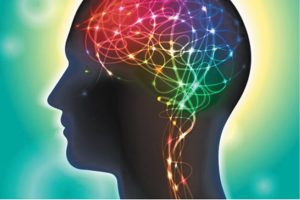 It’s no secret that we rely on our brains for a number of important daily functions that help us navigate our world. This complex organ enables us to make reasonable decisions, focus and concentrate in our jobs, listen and communicate with others, or even remember where we placed the house keys. It’s easy to take all this for granted when the brain operates as it should, but what if these cognitive functions are impaired? What challenges would this present, what risks should we be aware of—and what can we do about it?
It’s no secret that we rely on our brains for a number of important daily functions that help us navigate our world. This complex organ enables us to make reasonable decisions, focus and concentrate in our jobs, listen and communicate with others, or even remember where we placed the house keys. It’s easy to take all this for granted when the brain operates as it should, but what if these cognitive functions are impaired? What challenges would this present, what risks should we be aware of—and what can we do about it?
#1 Understanding the root causes of cognitive impairment is essential.
Research indicates that cognitive decline is not a single condition, but a response to numerous catalysts such as trauma, inflammation, suboptimal nutrients levels, toxic exposure, hormone imbalances, sleep disturbances or similar issues. In many cases, research shows that emotional trauma or abuse can be significant factors leading to cognitive impairment.
Prescription drugs (such as antidepressants, sleep aids, muscle relaxants, antihistamines, nonsteroidal anti-inflammatory painkillers, or blood pressure medications) may also contribute to cognitive decline. Sleep apnea can also lead to cognitive impairment by depriving the brain of oxygen, and low thyroid function is one of the most common hormone issues associated with cognitive decline. Living or working in an environment with mold contamination can negatively impact your cognitive function as well.
Undetected low-grade urinary tract infections could exacerbate cognitive decline in the elderly, and the residual symptoms of COVID-19 have been shown to impair cognitive abilities for weeks—or even months—after being infected.
#2 Head injuries from years ago (such as a concussion from a car accident or playing contact sports in high school) can affect cognitive function in later years.
There does appear to be an association between concussive episodes from sports injuries or motor vehicle accidents and the possibility of neurodegenerative illness, memory problems or other forms of cognitive impairment later in life.
#3 Proper cognitive testing are available to assess a person’s cognitive ability and overall brain health.
Cognitive assessments fall into two main categories. The first is a Psychometric Test which, in most cases, is administered by a psychologist that measure skills, abilities, traits or mental state. The second type of assessment is called Brain Imaging.
Some imaging techniques are used to visualize brain structures (CT, MRI) while others evaluate brain function (fMRI, SPECT, PET). The brain wave imaging technologies used at the Brain Wave Center measure and map the brain’s electrical activity (EEG, Brian Mapping and QEEG) to determine whether the brain operates in a state of healthy regulation, or whether it exhibits dysfunctional brain wave activity.
#4 Treating cognitive decline, traumatic brain injuries, memory loss and similar issues are available. Brain Wave Center offers innovative protocols and treatment options.
At the Brain Wave Center, our primary focus is with the brain’s electrical activity because we want to both test and optimize the brain’s performance. Our imaging technology (QEEG Brain Mapping) is used in conjunction with our neuropsychological assessment to evaluate a person’s current functional capacity.
This combination of technologies also allows us to look for any function deficits that might exist. The results are then used to create an action plan to assist our clients in their recovery from cognitive impairments or emotional dysregulations such as depression, anxiety or post-traumatic stress disorder, to name a few.
When we combine psychological support services with direct brain training or magnetic stimulation (neurofeedback or TMS), we can enhance the results and assist our clients more effectively. These treatments help restore brain electrical activity back into a state of healthy regulation without the use of medications.
#5 Additional risk factors, and how intervention for healing can slow or mitigate the effects of the disorder.
If you notice changes in your mood or memory, please do not delay an assessment. The earlier we can evaluate and intervene, the more likely we are to see positive changes in your brain health. If there is a history of head trauma or motor vehicle accidents in your life, the effect of these injuries could manifest years later as short-term memory loss, confusion, depression or other related cognitive impairments.
Your nutritional status can also have a critical role in the onset or advancement of cognitive decline by promoting neuroinflammation and neurodegeneration. At the Brain Wave Center, we’ll evaluate your nutrient intake to help you avoid neuroinflammatory foods. In addition, as you grow older, it’s common to notice sleep disruption, and if this persists, it can also increase the likelihood of cognitive decline.
It’s crucial to remain both physically and mentally active for as long as possible in order to preserve brain health, so challenge yourself to mind-body exercises on a regular basis. And of course, maintain positive social connections and learn how to manage your stress—we know that chronic stress is a major cause of cognitive decline in all age brackets.
Call The Brain Wave Center at 941-552-4500.
941.552.4500
BRAINWAVECENTERS.COM
640 S. Washington Blvd., Sarasota, Florida 34236









